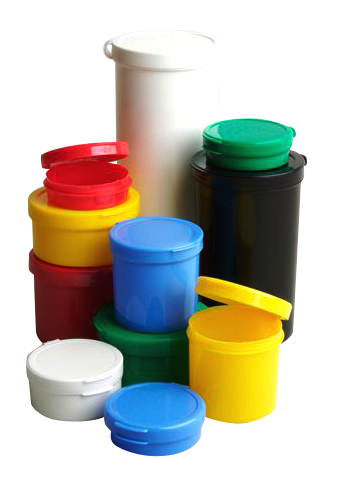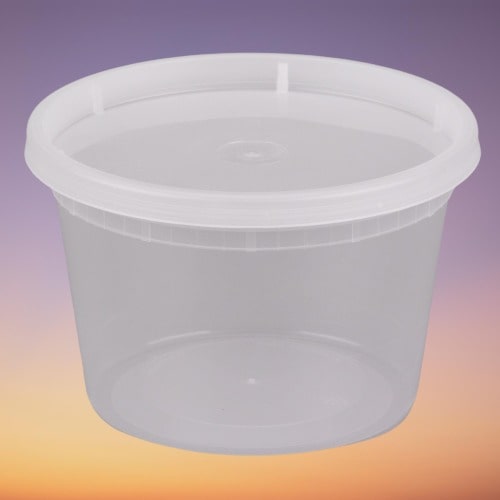A Comprehensive Overview to the Various Types of Bulk Plastic Containers Available Today
Mass plastic containers play an essential function in numerous sectors, supplying options for storage and transportation. Their diverse types cater to various demands, from stiff alternatives for strong products to versatile containers accommodating different forms. Each type offers distinct advantages, making it crucial to recognize their applications and functions. As sectors develop, so do the needs for efficient container services. What factors should one take into consideration when selecting the ideal bulk container?
Overview of Bulk Plastic Containers

Sorts Of Bulk Plastic Containers
Bulk plastic containers been available in various types, each matched to particular applications. Inflexible bulk containers, versatile mass containers, and intermediate bulk containers stand for the main categories, each offering distinct advantages. Comprehending these types is vital for choosing the appropriate container for delivering and storing products.

Inflexible Mass Containers
Rigid bulk containers are critical for reliable storage space and transportation of numerous materials throughout industries. These containers are typically constructed from resilient plastics, allowing them to endure extreme handling and ecological problems. They are available in numerous sizes and shapes, consisting of containers, totes, and drums, making them suitable for storing every little thing from granular compounds to liquids. Stiff containers typically feature strengthened wall surfaces and secure lids, making certain the contents stay secured throughout transit. Their stackable style makes the most of storage space, making them suitable for storage facilities and manufacturing facilities. In addition, many rigid mass containers are recyclable and recyclable, adding to sustainability efforts. Overall, their effectiveness and adaptability make rigid bulk containers a crucial component in supply chain operations.
Versatile Mass Containers
Versatile bulk containers, often referred to as versatile intermediate mass containers (FIBCs), act as a versatile service for keeping a variety and delivering of completely dry products. These containers are typically made from woven polypropylene and are made to be lightweight yet strong, enabling effective handling and stacking. Their flexibility enables them to accommodate different sizes and shapes, making them suitable for products varying from grains to chemicals. FIBCs can be equipped with features such as spouts for simple dental filling and discharge, along with protective finishings for enhanced sturdiness. In addition, they are recyclable and multiple-use, contributing to lasting practices in markets like farming, food processing, and construction. Overall, versatile bulk containers supply a effective and cost-efficient option for mass product management.
Intermediate Mass Containers
Intermediate bulk containers (IBCs) are essential for the effective transport and storage of liquids and granular materials throughout numerous sectors. These containers usually have a capacity ranging from 275 to 330 gallons and are made for simple stacking and taking care of. Made from long lasting products like high-density polyethylene or steel, IBCs supply exceptional security against contamination and environmental aspects. Their design includes attributes such as a built-in pallet for forklift gain access to and a removable top for simple dental filling and cleaning. IBCs are commonly made use of in chemical, food, and pharmaceutical sectors, guaranteeing conformity with safety and security regulations. Their convenience and reusability make them a cost-effective service for mass storage space and transportation, adding to provide chain performance and sustainability.
Functions and Benefits of Bulk Plastic Containers
Bulk plastic containers are essential tools in different sectors, using a mix of durability and practicality. These containers are constructed from premium products, making them resistant to effects, chemicals, and ecological elements. This effectiveness assurances product safety throughout storage and transport.
Additionally, mass plastic containers are lightweight, facilitating ease of lowering and handling shipping prices. Their stackable style maximizes storage space efficiency, permitting for enhanced warehouse area. Many models feature safe lids or closures, giving an airtight seal that maintains materials and avoids contamination.
Mass plastic containers are recyclable and often reusable, contributing to lasting techniques. Their convenience enables for a vast array of applications, from food storage to commercial usage, boosting their worth across fields. Organizations benefit from the long lifespan and low upkeep demands of these containers, making them an economical remedy for both long-lasting and temporary demands.
Industries That Utilize Bulk Plastic Containers
Numerous industries profit from making use of bulk plastic containers, each leveraging their special residential properties for particular applications. The food and drink sector counts on these containers for secure storage space and transportation of products, while the chemical production field uses them for dealing with harmful materials. Additionally, the pharmaceutical distribution requires stress the relevance of sturdiness and cleanliness in product packaging remedies.
Food and Beverage Sector
As the demand for reliable and secure storage solutions proceeds to climb, the food and beverage industry significantly depends on bulk plastic containers for their functional demands. These containers provide durable, light-weight, and versatile choices for storing active ingredients, finished products, and waste products. Made from food-grade materials, here are the findings they guarantee conformity with health and safety and security requirements. Different styles, such as stackable containers and carry boxes, optimize room during transport and storage space, boosting logistical effectiveness. Furthermore, the openness of some mass containers enables simple inventory management, minimizing the danger of wasting. With the industry's emphasis on sustainability, several producers are currently using reusable and recyclable choices, lining up with environment-friendly techniques while satisfying the high needs of food security and health.
Chemical Production Industry
The chemical manufacturing market counts greatly on mass plastic containers for the risk-free and effective storage of basic materials, intermediates, and ended up products. These containers are made to withstand various chemicals, ensuring that hazardous products do not leakage or weaken the container itself. Common kinds include high-density polyethylene (HDPE) and polypropylene containers, which use outstanding chemical resistance and toughness. Their light-weight nature and stackable style help with transport and storage space, maximizing space in producing facilities. Additionally, several mass plastic containers feature functions such as tamper-evident seals and easy-to-read labeling, improving safety and security and compliance with sector guidelines. Overall, bulk plastic containers are essential to the chemical production process, providing trustworthy options for taking care of varied substances.
Drug Circulation Demands
Pharmaceutical distribution depends on bulk plastic containers to satisfy stringent safety and governing needs. These containers are necessary for keeping a range and moving of pharmaceutical items, including energetic pharmaceutical ingredients (APIs) and finished medicines. Their style assurances defense against contamination, moisture, and light, preserving the stability of delicate materials. In addition, mass plastic containers are compliant with sector criteria such as Good Production Practices (GMP) and are commonly made from products that are FDA-approved. The usage of these containers enhances performance in the supply chain, permitting safe, massive circulation while reducing waste. Business in the pharmaceutical field prioritize making use of sturdy, watertight, and tamper-evident containers to guarantee item safety and quality throughout the logistics procedure.
Considerations for Picking the Right Container
When choosing the proper mass plastic container, various elements have to be carefully considered to guarantee suitable functionality and security. The nature of the materials to be kept is critical; compatibility with the container's material can influence integrity and safety and security. bulk plastic containers for sale. Additionally, the container's shapes and size have to straighten with the storage and transport needs, ensuring reliable room use
Tons capability is one more crucial factor to consider, as it needs to accommodate the weight of materials without threat of damage or failure. The style features, such as venting or lids, can influence use and gain access to. Conformity with market regulations is essential, especially in markets like drugs, where security criteria are rigid.
The anticipated life-span and sturdiness of the container should be examined to validate it satisfies the operational demands without constant substitute. By reviewing these aspects, one can pick the most ideal mass plastic container for particular applications.
Environmental Effect and Sustainability
As organizations significantly prioritize sustainability, the environmental impact of bulk plastic containers has actually come under scrutiny. These containers, often made from products such as polyethylene or polypropylene, add significantly to plastic waste otherwise handled effectively. Their manufacturing includes the consumption of nonrenewable fuel sources, check my site which can lead to raised greenhouse gas exhausts. Nonetheless, advancements in recycling innovation and the development of eco-friendly choices are assisting to minimize these problems.
Several makers are taking on methods that emphasize the use of recycled materials, consequently minimizing the demand for virgin plastics. The longevity of mass plastic containers likewise contributes; they are developed to be reused multiple times, which can minimize their overall ecological footprint when contrasted to single-use options. Ultimately, the industry faces the difficulty of stabilizing capability with ecological duty, making sustainable practices vital for the future of bulk plastic containers.
Best Practices for Storage and Transport
Effective storage and transportation of mass plastic containers significantly affect both operational efficiency and sustainability. To maximize area, organizations need to stack containers securely, guaranteeing security and stopping damages. Correct labeling is essential for easy identification, which enhances retrieval procedures. Additionally, maintaining a tidy and well organized storage location decreases the threat of contamination and boosts security.
For transportation, choosing the best lorry is important; containers must be protected to stay clear of changing during transportation. Business ought to also consider using pallets to facilitate simpler loading and unloading. Normal examinations of containers for deterioration can prevent pricey replacements.
Temperature level control is one more important aspect, as extreme problems can compromise the honesty of the plastic. Training workers on ideal methods for handling and transport assurances conformity and promotes a culture of safety and security. By applying these best methods, services can improve their functional effectiveness while contributing to environmental sustainability.
Often Asked Concerns
Exactly how Do I Tidy Mass Plastic Containers Effectively?
To clean bulk plastic containers successfully, one must rinse them with warm water, utilize a light detergent and scrub with a soft brush. Rinse extensively, after that enable to air dry completely before storage space or reuse.
What Is the Lifespan of Mass Plastic Containers?
The life-span of bulk plastic containers normally varies from 5 to ten years, depending on the product, use, and environmental problems. Correct upkeep and storage space can considerably expand their use and resilience in time.
Can Bulk Plastic Containers Be Custom-made?

Do Bulk Plastic Containers Have Warranty Options?

Exist Rules for Utilizing Mass Plastic Containers?
Yes, guidelines exist for using mass plastic containers, primarily concentrated navigate to this website on safety and security, ecological impact, and material conformity. These policies guarantee that containers satisfy market criteria and appropriate for transferring various substances safely and efficiently.
Rigid mass containers, adaptable bulk containers, and intermediate mass containers represent the main categories, each offering distinct benefits. Adaptable bulk containers, frequently referred to as versatile intermediate bulk containers (FIBCs), serve as a versatile service for carrying and storing a selection of dry materials. The chemical production field counts greatly on bulk plastic containers for the efficient and safe storage of raw materials, intermediates, and completed products. bulk plastic containers for sale. These containers are designed to withstand various chemicals, making certain that hazardous products do not leak or deteriorate the container itself. In addition, bulk plastic containers are certified with market criteria such as Good Production Practices (GMP) and are commonly made from materials that are FDA-approved